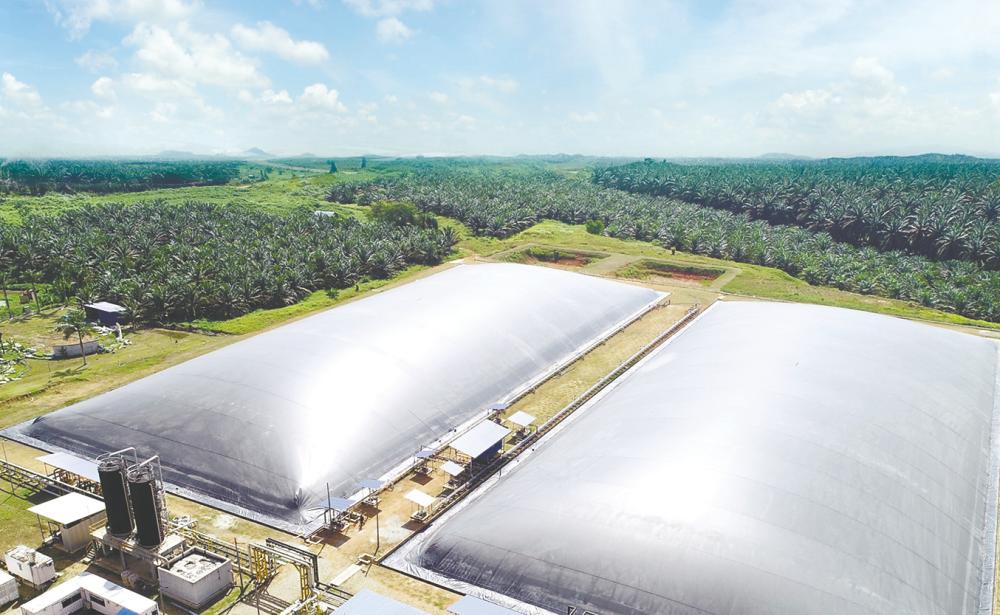KUALA LUMPUR: Johor Plantations Group Bhd (JPG) is championing a more sustainable future for the industry through its pioneering venture into commercial biomethane production.
By capturing biogas from palm oil mill effluents (POME) and converting it into biomethane (renewable natural gas), JPG will reduce its environmental footprint as well as create a new revenue stream for the company over the next five years.
By turning palm oil waste into a renewable, environmentally-friendly revenue source, JPG is able to enhance energy efficiency while establishing itself as a leader in sustainable agricultural practices. This is in line with the group’s massive transformation purpose, which is to produce sustainable essentials for mankind, with the aim of harmonising economic growth with environmental care and social responsibility.
“We are thrilled to be at the forefront of this transformative project. Our commitment to sustainability has always been a core value, and this ‘Waste to Wealth’ initiative demonstrates our dedication to finding innovative solutions that benefit both our business and the environment,” said JPG managing director Mohd Faris Adli Shukery.
POME is wastewater generated by palm oil extraction and purification activities that may become a major environmental pollutant if left untreated. Industry players are required to capture biogas from POME at their palm oil mills by installing mechanisms to trap biogas in wastewater facilities, in line with the Malaysia Palm Oil Board (MPOB)’s mandatory requirements to manage waste sustainably. JPG has taken one step further by capturing biogas from POME and converting it into biomethane.
Biomethane is a cleaner and more efficient alternative to traditional fossil fuels. It produces significantly fewer greenhouse gas (GHG) emissions and air pollutants, making it a vital component of a sustainable energy future. It is also an effective transitional bridge fuel that supports the shift to renewable energy as an alternative to the oil and gas industry. Furthermore, JPG’s biomethane production aligns with Malaysia’s National Energy Transition Roadmap, which aims for renewable energy to comprise 70% of the total installed energy capacity by 2050.
JPG’s partnership with MTC Orec Sdn Bhd has been instrumental in the success of this initiative. The collaboration led to the establishment of JPG Greenergy Ventures (JPGGV), enabling JPG to leverage its expertise in palm oil production with MTC Orec’s renewable energy expertise, resulting in the successful production of biomethane at JPG’s Sedenak palm oil mill.
Building on this success, JPGGV had sign a purchase agreement with Gas Malaysia Bhd subsidiary Gas Malaysia Green Ventures Sdn Bhd (GMGV) in 2019 to supply biomethane to the natural gas distribution system. This agreement, valued at RM25 million, will see JPG supply a total of 250,000 MMBtu of biomethane over 15 years. Another JPG subsidiary JPG Greenergy, also signed its own gas purchase agreement with GMGV to supply a minimum of 350,000 MMBtu of compressed biomethane for 15 years. This biomethane will be sourced from two new plants currently under construction at Tereh and Sindora.
With these opportunities on the horizon, JPG’s new bioenergy pillar is expected to produce a capacity of up to 676,000 MMBtu and generate a gross profit margin of 40% to 50% per year over a five-year period from 2024 to 2028.
By capturing biogas and converting it into biomethane, JPG is contributing to global efforts to combat climate change. The group’s initiative is expected to avoid approximately 217,543 tonnes of CO2 equivalent GHG emissions, making a significant impact on the environment.









